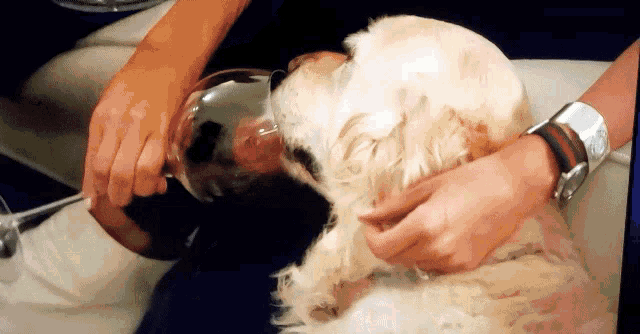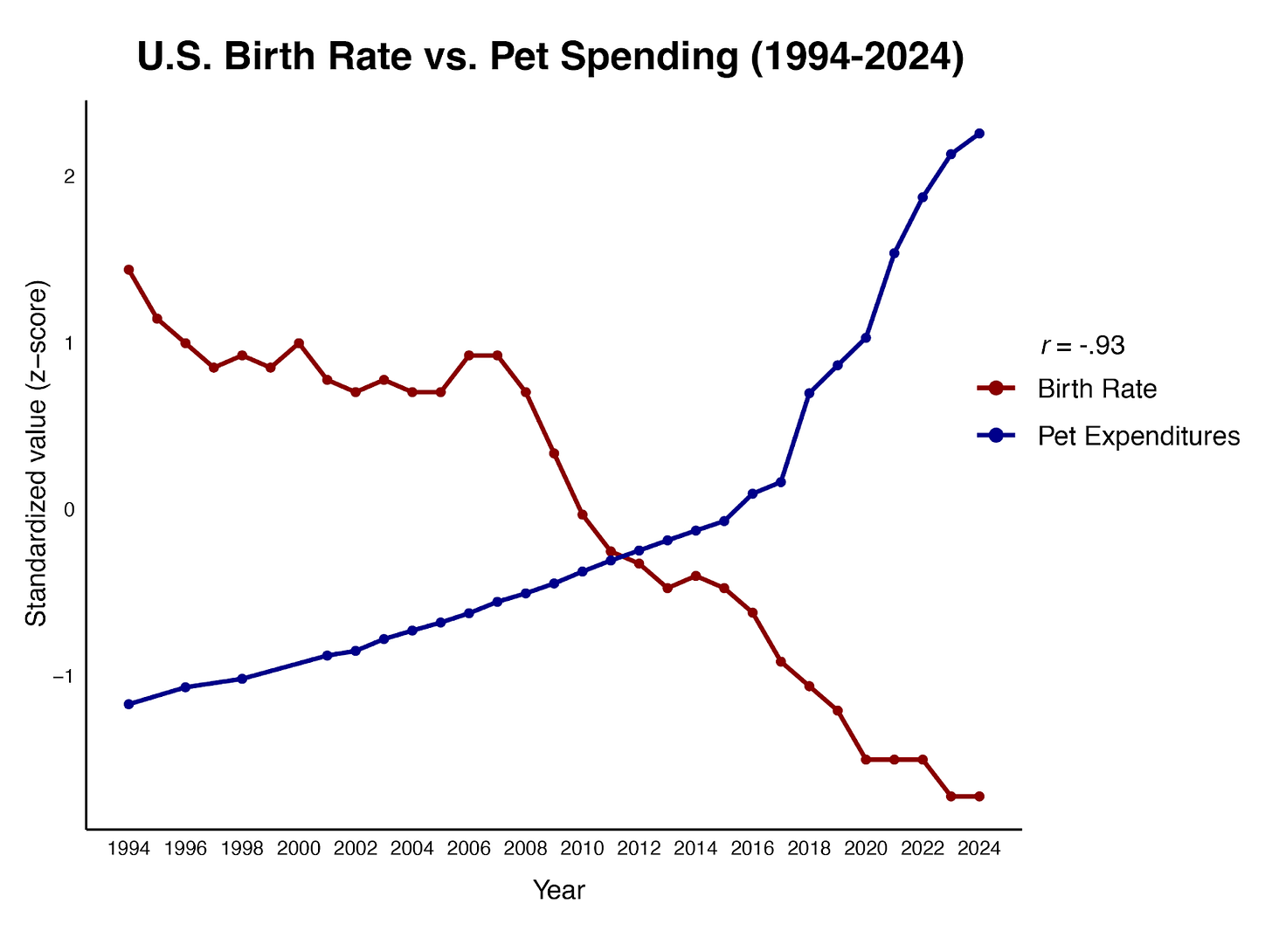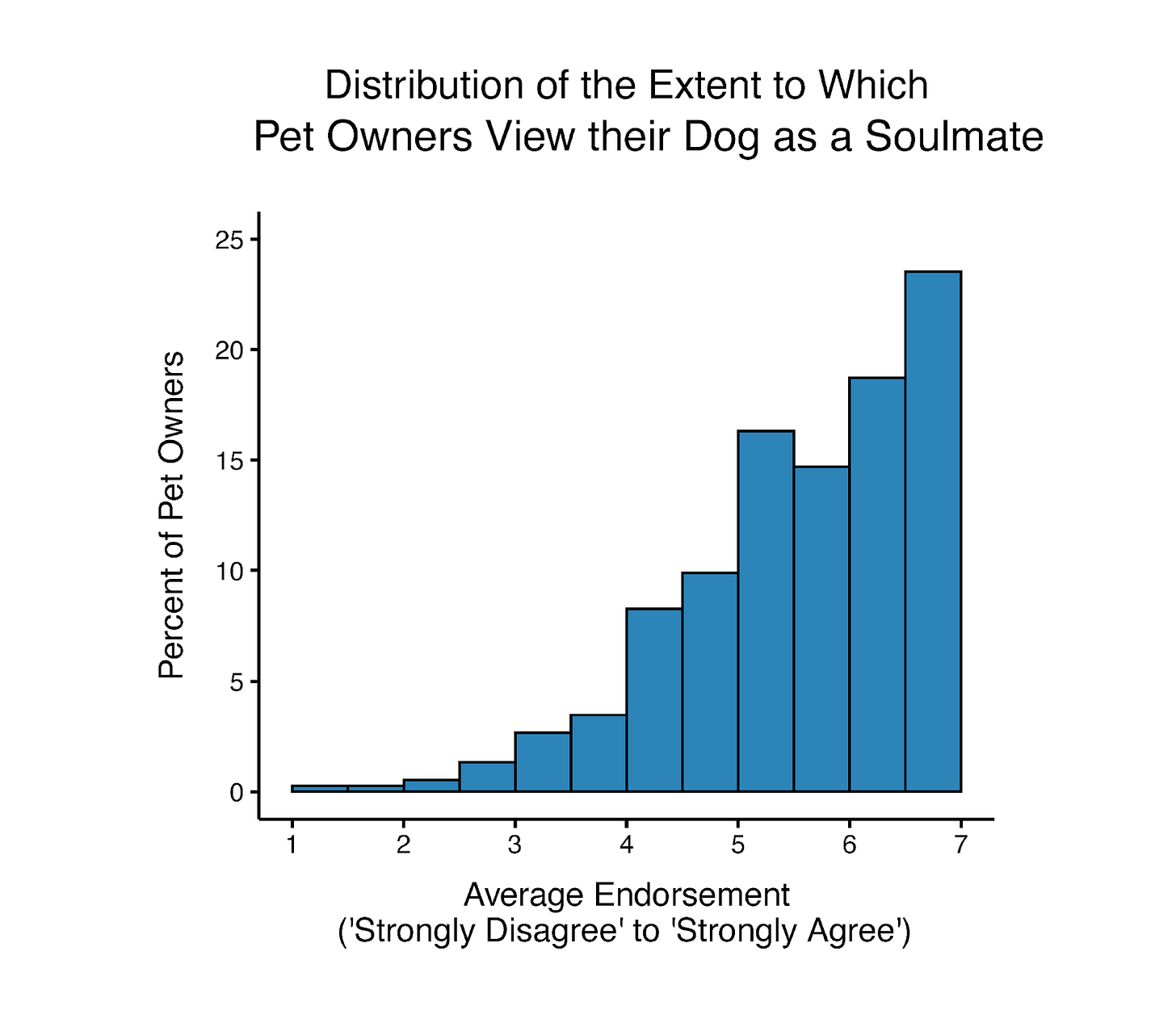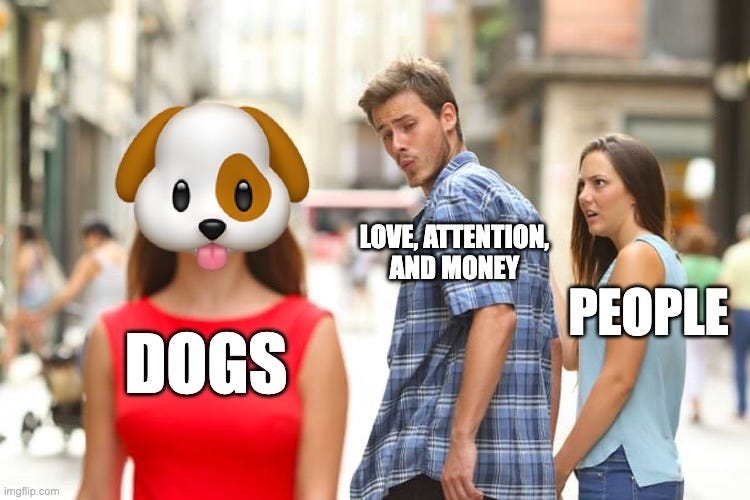1 in 5 Dog Owners Will Save a Puppy’s Life Over Yours
Are pets the new people?
You’re drowning in a lake beside a struggling puppy. Only you or the puppy can be saved. Our new study shows that one in five American dog owners would choose to save the puppy over you. Are these people moral monsters or compassionate animal-lovers?
People have always debated the moral status of animals, from enjoying bear-baiting (where a stadium full of Victorian-era people watched a bear fight a monkey on a horse) to choosing vegetarianism. But people never considered the lives of animals to be more valuable than those of humans… until now. Our work shows that many people now view their pet as their soulmate.

Examples of human-like pets are everywhere. I (Danica) was inspired to study people’s relationships with their pets after talking to a friend who was disgusted by a dog drinking from a public (human) water fountain. To me, it seemed harmless. Why not let a thirsty dog take a sip? But my (non-American) friend saw it as yet another example of America’s gross fixation on dogs.
But are we really that obsessed with dogs? And if so, does it make us morally depraved? These questions inspired us (Danica, Helen, and Kurt) to run some studies (full preprint here).
From Baby Boom to Fur Baby Boom
We all agree that babies deserve our deepest care and protection—but what about dogs? Many Americans have begun referring to themselves as the “mommy and daddy” of their pet, a trend that’s also seen in millennials opting for “fur babies” over human ones. We tracked pet spending and birth rates in the United States from the past 20 years and found a near-perfect inverse relationship: as the national birth rate has fallen, pet spending has exploded (r = -.93). The link held even after controlling for inflation, GDP, population, the poverty rate, and median age—and it replicated across counties. Counties with the lowest birth rates have the highest density of pet stores, dog groomers, and doggy daycares.

As more people choose not to have real babies, it seems they’d rather spoil their fur babies with chew toys and dog strollers. The childless participants in our studies were also more likely than those with kids to describe their dog as a soulmate and choose their dog—or even a stranger’s puppy—over a person in moral dilemmas. America’s love affair with dogs changes our closest relationships with children and with other people.
The Rise of the Canine Soulmate
Dogs are filling the role of our kids, and our work reveals they are now often our closest confidants.
People spend their whole life searching for their human soulmate. How lucky it is that the dog version is just waiting at the shelter! Of course, soulmate is a broad term, and (most) people aren’t romantically in love with their dog. But many do see their dog as their closest emotional connection.
We ran a survey asking dog owners about their relationship with their pet—how they spend time with them, rely on them, and trust them.
The majority of dog owners saw their pet as a soulmate, describing their love as “purer” than other people’s. Almost three-quarters of dog owners described their canine companion as their primary source of emotional support.

Dogs are undeniably lovable, cute companions. But a “soulmate” is a deep connection “based on mutual understanding and acceptance”. Few people would use that word for their pet, yet many describe their dogs in ways that fit the label: as their main source of emotional support, offering the purest kind of love. And many people don’t even believe that human soulmates truly exist. Is it crazy to love your dog this much?
Well…dogs are more reliable than humans. Unlike messy, unpredictable humans, dogs never criticize, betray, or ghost you. Their affection feels pure, unconditional, and safe. Many dog owners have found a new source of support that they need in their animals. Dogs understand and accept all of us for who we are—without any questions barked back.
But there’s a problem. When you love someone or something that much, you would do anything for them. Even if it means hurting someone else.
Man’s Best Friend, Humanity’s Rival?
Since dogs are taking up more space in our hearts, as children and as soulmates, something must be pushed out.
Every day we breeze past homeless people on the street, some while on our way to buy our pets fancy artisanal treats, or to give them princess treatment with doggie mud baths and blueberry facials. Even when giving to the homeless, people are more likely to help when they have a dog by their side.
We put the moral sensibilities of dog owners to the test, giving both them and non-dog owners dilemmas asking them to choose between the well-being of their dog versus a fellow human being. Before we tell you the results, try some of the dilemmas yourself. Imagine you walk by a puppy and a human stranger on the street, both are very hungry, but you only have $50 to give. Which would you give the money to?
A little more serious: Imagine you are in a situation where you have to choose between saving the life of a puppy you don’t know, or the life of another person. Who would you rescue?
We were curious if dog owners (compared to non-dog owners) would respond differently to these “trolley-esque” moral dilemmas—especially if they felt like their pet was their soulmate. They did. Dog owners who were emotionally connected to their pet were especially likely to put the needs of dogs over people. One in four owners chose to donate $50 to a puppy in need over a child in need. Nearly half of dog owners chose to feed a hungry dog over a hungry stranger.
When choosing between the lives of dogs versus humans, over half of dog owners said they would save their own dog over a human stranger. On some level, this makes sense—you love your dog and see them every day. It’s easier to picture them at risk than a nameless stranger.
But one in five dog owners also said they’d rescue a puppy they’d never met over a human stranger. We were shocked–how could people put the needs of random dogs over fellow human beings? One answer might lie in the social void within us.
The Loneliness Void
The rise of the canine soulmate can’t be separated from the broader loneliness epidemic. America’s social networks have been unraveling for decades. A 2023 Surgeon General’s report declared loneliness a public health crisis, comparing its health effects to smoking 15 cigarettes a day. Dogs fill the loneliness void perfectly. They greet us with joy, demand little, and pull us outdoors. They can even spark small talk at the park, and research shows dog ownership is linked to better health and well-being. Yet, as our results caution, these benefits may come with hidden costs.
Our unique empathy for our pets can be partly explained by how we perceive vulnerability. Humans instinctively respond to helplessness. Dogs, especially puppies, are built to trigger it. Their big eyes and round faces activate the same neural circuitry that makes us coo over infants. Through centuries of selective breeding, we’ve shaped dogs into adorable bundles designed to hack our caregiving systems.
But while this empathy is natural, it’s also selective. We found the same people who express profound love for dogs don’t necessarily extend that compassion to other animals. Dog owners in our research were no more likely than non-owners to eat less meat or report lower speciesism. Their heightened empathy appeared to be dog-specific.
Owners who saw their dogs as soulmates also reported less interest in people, less charitable giving to human causes, and greater willingness to forgo social events for time with their pets. Recentering dogs emotionally (over humans) risks replacing rather than enriching the social world.
This is the “companion-dog cultural-runaway theory,” as psychologist Eniko Kubinyi calls it: a feedback loop in which modern loneliness fuels deeper attachment to pets, which may in turn further displace human connection. In a world of dating apps, remote work, and social fragmentation, a dog offers stability. It’s no wonder so many of us cling to them.
Importantly, we’re not saying that people should necessarily love their dogs less (we’re dog lovers ourselves). But when people say their dog’s love is “purer” than a human’s, what they may really mean is that it feels safer. Dogs offer emotional rewards without risk of rejection or conflict.
But it’s a problem when loving our pets prevents us from taking the risk of loving other people. There is good news: pets can help people connect with others. In one experiment, a man approached random women, either while alone or with his dog, and asked for their phone numbers. When alone, his success rate was only 10%, but it tripled to 30% when he was out with his dog.
So even though our experiments forced people to choose between dogs or people, in real life, the best choice might be dogs and people. Loving pets “too much” doesn’t mean we need to put down the leash, but to remember we should look up from it, and recognize that the love we lavish on our dogs is also meant for each other.







Since you're a human, I expect you to put in some effort. will save the dogs (especially my dogs) first, and you need to do whatever it is you need to do to hang on and I will come help as soon as my dogs are safe. I'll be quick as possible!
This is a fascinating and detailed report on the dogs-as-humans phenomenon. As a dog-crazed childless volunteer for dog rescue, even I am greatly annoyed by people who treat their dog like royalty, but are assholes to other humans. And who think that everyone is supposed to be as into their dog as they are by dragging it everywhere they go and shoving it in your face. There is a subset of dog-owners who hate people, but the most balanced ones are the ones who love both people and dogs. But, I am fond of saying, "I love my husband, but I REALLY love my dog!"